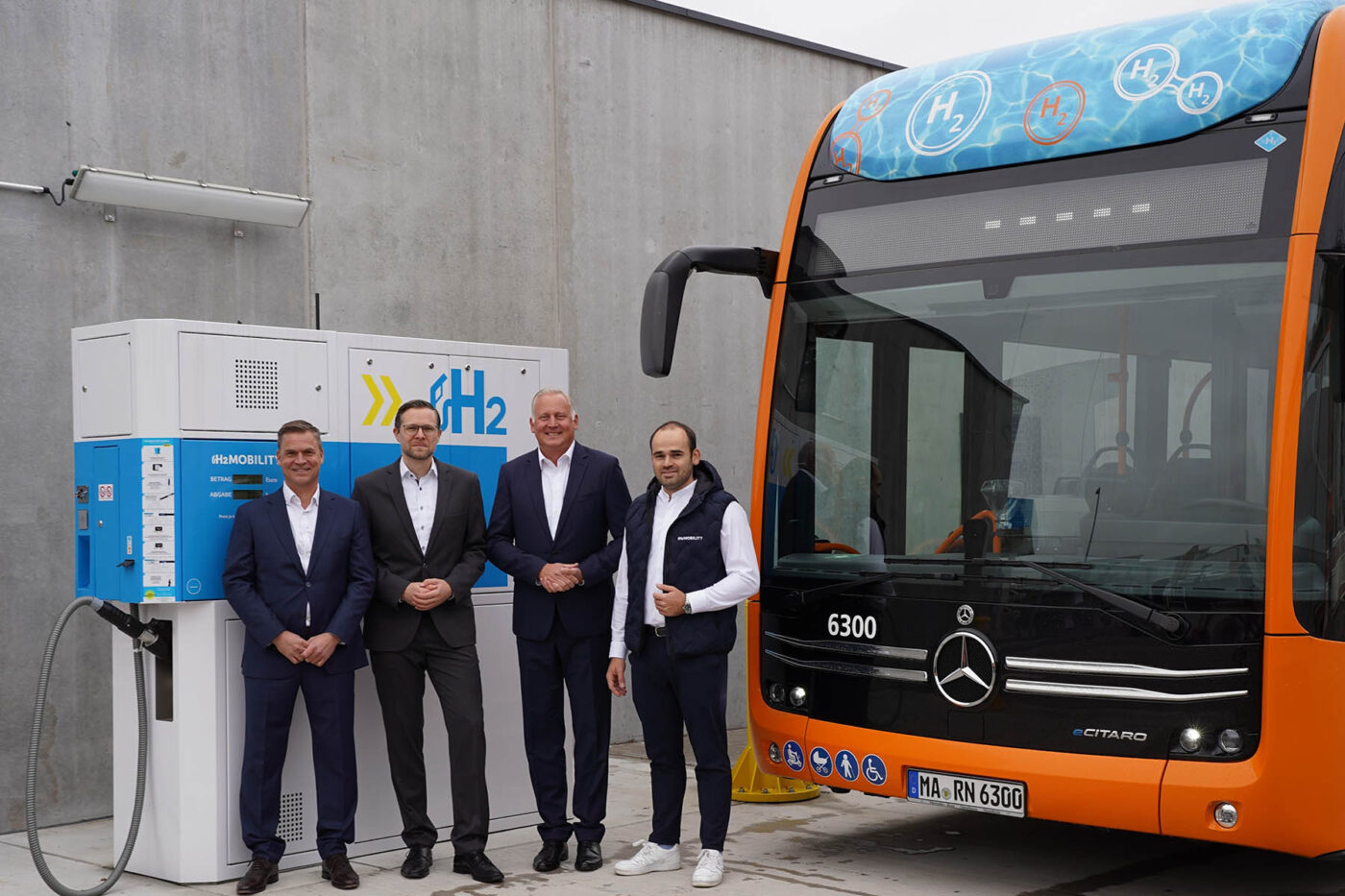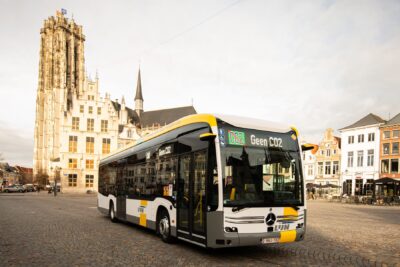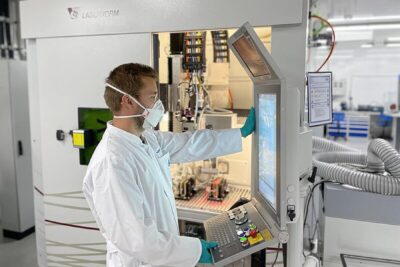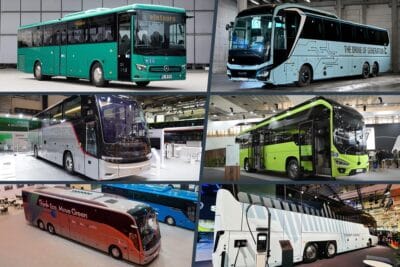Daimler Buses and H2 Mobility cooperate on hydrogen refuelling stations for public transport
Daimler Buses has stated that its electrification strategy goes far beyond the vehicle itself. In cooperation with its subsidiary Daimler Buses Solutions, which specialises in the design and development of infrastructure for electric buses, and other partners, the commercial vehicle manufacturer supplies “turnkey solutions for the operation of electrically powered bus fleets from a single source on request.” Daimler Buses already provides customers with charging solutions, digital fleet tools and other ecosystem components when they purchase electric buses.
However, the commercial vehicle manufacturer has also had the eCitaro fuel cell in its portfolio since 2023 – a battery-electric bus with a hydrogen fuel cell as a range extender. The cooperation with H2 Mobility is now also intended to make it easier for customers who opt for this bus variant to access solutions for hydrogen infrastructure. A holistic consulting approach is being pursued.
Among other things, the cooperation should enable the use of public hydrogen refuelling stations. However, this point should be particularly interesting: H2 Mobility wants to set up H2 refuelling stations in the direct vicinity of transport companies in line with demand. In addition, public transport operators will be able to obtain an H2 refuelling station directly at their own depot if required. ‘With H2 Mobility Deutschland, we have found a partner that makes this possible and significantly reduces the complexity for transport companies from installation to ongoing operation,’ says Mirko Sgodda, Head of Marketing, Sales and Customer Services at Daimler Buses.
Incidentally, there are no investment or operating costs for the fuelling station infrastructure for the transport companies. The only catch: the refuelling facilities are not exclusive to the respective public transport operator; instead, the announcement refers to public access. “Daimler Buses customers therefore benefit from the services of an experienced provider who ensures operation and a continuous supply of hydrogen. At the same time, the public H2 tank infrastructure will be strengthened and further expanded,” it says.
Mirko Sgodda, Head of Marketing, Sales and Customer Services explained: “We are pursuing a clear electrification strategy, and we are putting buses with alternative drive technologies onto the road. Like our parent company Daimler Truck, we are building on battery-electric vehicles and the hydrogen-based fuel cell. With our eCitaro fuel cell, we have had an electrically powered bus in our portfolio since 2023, which is equipped with a hydrogen-based fuel cell to extend the range. We want to offer our customers the best solutions for smooth operation – and this includes a hydrogen tank facility in the immediate vicinity, or at their own depot.”
The petrol station now in operation in Mannheim is not the first H2 filling station at an RNV depot. A refuelling station has already been available at the new depot in Heidelberg since April. Together with the public transport operator, another hydrogen refuelling station is to be built in Ludwigsburg by next year. The 48 eCitaro fuel cell vehicles in the RNV fleet will then be able to refuel with hydrogen at a total of three locations (Heidelberg, Mannheim and Ludwigsburg).





0 Comments